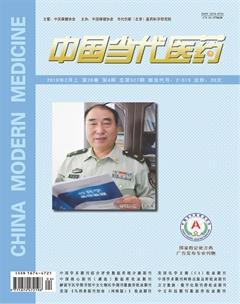过敏性紫癜合并肺炎支原体感染患儿的特征表现及治疗结局分析
蔡勉珊 方炳雄 黄旭东 等


[摘要]目的 探討与分析过敏性紫癜(HSP)合并肺炎支原体感染患儿的临床特征及治疗结局情况,分析HSP复发与肺炎支原体感染的相关性。方法 从2016年3月~2017年11月在普宁市人民医院收治的HSP患儿中,根据双盲法随机抽取180例患儿作为研究对象,根据患儿肺炎支原体DNA检测结果,将其分为支原体感染组(95例),与非支原体感染组(85例)。分析临床特征,并对患儿进行治疗,比较两组治疗后生化检验和血常规检验各项指标情况,并观察两组的住院时间以及复发情况。结果 支原体感染组总胆固醇(TC)、天冬氨酸转氨酶(AST)、丙氨酸氨基转移酶(ALT)水平均高于非支原体感染组(P<0.05);支原体感染组白细胞计数(WBC)、红细胞计数(RBC)、血小板计数(PLT)和血红蛋白(Hb)水平均高于非支原体感染组(P<0.05);支原体感染组的住院时间长于非支原体感染组,且复发率高于非支原体感染组,差异均有统计学意义(P<0.05)。结论 HSP患儿复发受到肺炎支原体感染因素的影响,临床上应尽早对HSP患儿进行肺炎支原体DNA检测,及时诊断和治疗,从而降低患儿HSP的复发率。
[关键词]过敏性紫癜;肺炎支原体感染;临床特征;甲泼尼龙;西咪替丁;氯雷他定;孟鲁司特钠;阿奇霉素
[中图分类号] R725.5 [文献标识码] A [文章编号] 1674-4721(2019)2(a)-0146-04
[Abstract] Objective To explore and analyze the clinical characteristics and treatment outcome of children with Henoch-Schnlein purpura (HSP) complicated with Mycoplasma pneumoniae infection, and to analyze the correlation between the recurrence of HSP and Mycoplasma pneumoniae infection. Methods Altogether 180 cases of patients with HSP and who received treatment in Puning People′s Hospital from March 2016 to November 2017 were selected as research objects according to the double blind method, and were divided into 95 cases of Mycoplasma infection group and 85 cases of non Mycoplasma infection group according to DNA test results of patients with Mycoplasma pneumoniae. Then, the clinical characteristics were analyzed and patients were given the treatment, and the each indexes changes of biochemical test and blood routine test after the treatment of two groups of patients were compared, and the hospitalization time and recurrence of the two groups were observed. Results The levels of total cholesterol (TC), aspartate aminotransferase (AST) and alanine aminotransferase (ALT) in Mycoplasma infection group were higher than those in non Mycoplasma infection group(P<0.05). The levels of white blood cell count(WBC), red blood cell count(RBC), platelet count(PLT) and hemoglobin (Hb) in Mycoplasma infection group were higher than those in the non Mycoplasma infection group (P<0.05). The hospitalization time in the Mycoplasma infection group was longer than that in the non Mycoplasma infection group, and the recurrence rate was higher than that in the non-Mycoplasma infection group, the differences were statistically significant (P<0.05). Conclusion The recurrence of patients with HSP is influenced by the infection factors of Mycoplasma pneumonia, which it is necessary to detect Mycoplasma pneumoniae DNA in patients with HSP as early as possible, and timely diagnose and treat, so as to reduce the recurrence rate of patients with HSP.

